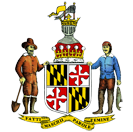| UGRR RESEARCH EVALUTION
I really enjoyed working on the UGRR Project. I most enjoyable work was the case studies. Researching case studies is most interesting when different studies connect or link due to some type of relationship between flight accomplices, runaways, or slave owners. I also found several interesting newspaper ads advertising runaway slaves. For example, the committal notice on Mary Ann Waters, a suspected runaway. Waters was actually a man posing as a women hiring himself out to do domestic work in Baltimore City. I also found record stripping to be quite easy. The databases set up with the exact fields pertaining to Census and docket stripping helped to make the process of transferring data from the original docket or Census records on microfilm fairly easy.
I did find the actual process of newspaper stripping to be quite tedious and boring. Newspaper stripping could probably be done easier if smaller segments of dates to cover are given out periodically throughout the research. Spending several days at a time newspaper stripping can be very boring leading to mistakes such as over-looking advertisments. Smaller segments given in-between other assignments would help to make the process less tedious.I also found the the changing of note taking methods to be a bit confusing at times. Changing the method in which I was keeping notes right in the middle my case studies was very time consuming for me. I had to learn a new process of recording,adding and editing information afer several of my case studies had already been completed. If the process had of been shown to me from the beginning I may have been able to complete more case studies instead of going back and adding old case studies to the new note taking system.
There are several ways in which researching this project could be improved. There were several times when I was confused on how deep I should carry-out my research. For example if I was checking census records on a John Smith from P.G. County and found 15 John Smith from P.G. County in the index, should I look up everyone until I determine which one is the right John Smith or would that be too time consuming. It would also help future researchers, especially interns not heavily experienced with researching, if they could be taught how to pick out the most resourceful information and what should be given the most information, instead of wasting one's time looking for documents which will not yield much information to the case study. Sometimes I was a little confused on how fast I should be pacing myself when doing certain work. Work projects such as case studies can be left to complete as one sees fit, but other work such as record stripping could be given an actual due date. This will keep researcher who are not use to managing time and pacing themselves with their work on the same page as everyone else on there researching team. New interns should always be taught the best ways to break time up researching in order to cover all the possible areas that information can be found
I don't think this project actually defines what it feels is a sucessful escape. For example, a runaway who has been advertised for over a long period time could be seen as most likely a successful escapee. We should address cases such as these as sucessful and explore those we determine as failures, such as committals. This project is center on the flight of slaves from enslavement, but I think to better understand why slaves escape we need to answer questions on what was the daily life of a slave in order to understand what was normal and what would give cause for a slave to run in the Chesapeake region. Slave life differs from environment to environment so reasons for running probably differ too. Eventually we will want to compare and contrast the slave life and flight with other regions in the United States in order to understand how the Maryland experience differed from the slave experience in other states. Another question is how did free whites who were unaware of their participation in slave flight effect the UGRR?
At this stage of our work on the UGRR project David Terry did not need to be as hands on as he did in the beginning. Howver, he is always available,if not directly then by email, to answer questions or give suggestions. He also took the time to create work schedules for each of us detailing our different assignments. He also always wanted progress reports to make sure we were on schedule. David is always very appreciative of our work and he trusts with a level of independence. David also guides us and pushes us to set up our on methods or strategies for researching and revising our biographies. David set up periodic meetings which help us to set goals for completing tasks and inform us whether we are moving along on the right path. David is extremely easy to work with and pleasent. He never assigns an overload of work and any work he asks to be completed last minute is always appreciate and it's good to be appreciated.
|
